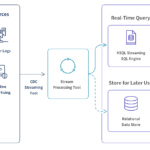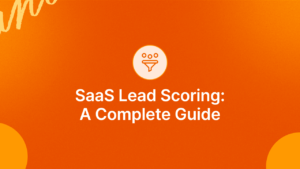Tracking lifecycle stages with modern CRM tools is essential for business growth. These tools help manage customer relationships effectively.
In today’s fast-paced business world, keeping track of customers’ lifecycle stages is crucial. Modern CRM tools offer a way to streamline this process. They help businesses understand where each customer is in their journey. This insight allows companies to provide better support and targeted marketing.
Understanding customer lifecycles can lead to improved sales and loyalty. By using modern CRM tools, businesses can gather valuable data and make informed decisions. This blog post will explore how these tools can help track and manage customer lifecycle stages. Dive in to learn how your business can benefit from these powerful tools.
Introduction To Crm Tools
Customer Relationship Management (CRM) tools have become essential for businesses. They help manage interactions with current and potential customers. These tools streamline processes, track customer data, and improve overall efficiency.
Importance Of Crm
CRM systems play a crucial role in maintaining customer satisfaction. They keep track of customer interactions and data. This ensures personalized communication and better service. Businesses can quickly respond to customer inquiries and issues.
CRM tools also help in identifying sales opportunities. They provide valuable insights into customer behavior and preferences. With this information, businesses can tailor their marketing efforts. This leads to higher conversion rates and customer loyalty.
Evolution Of Crm Technology
CRM technology has come a long way. Initially, it was just a digital Rolodex. It stored customer contact information. Over time, it has evolved into a powerful tool. Modern CRM systems offer automation and advanced analytics.
Cloud-based CRM solutions are now popular. They provide easy access to data from anywhere. Mobile CRM apps allow sales teams to work on the go. Integration with other business tools has enhanced CRM capabilities. This makes it easier to manage all customer-related tasks in one place.
AI and machine learning have further improved CRM tools. They help predict customer needs and automate routine tasks. This allows businesses to focus on building strong relationships. The evolution of CRM technology continues to shape the way companies interact with customers.

Credit: cobalt.net
Curious about CRM and Customer Support? This post offers a deeper understanding. Saas CRMs for Multilingual Customer Support: Boost Global Engagement
Identifying Lifecycle Stages
Understanding the lifecycle stages of your customers is crucial. Modern CRM tools help businesses track these stages effectively. This ensures each customer gets the right attention at the right time. By segmenting your customers, you can tailor your approach to meet their needs better.
Lead Generation
Lead generation is the first stage in the customer lifecycle. It’s about attracting potential customers. CRM tools help you capture and manage leads efficiently. These tools can automate the process, saving time and effort.
Here are some common methods for lead generation:
- Email campaigns
- Social media marketing
- Content marketing
- SEO
With CRM tools, you can track the source of each lead. This helps you understand which methods are most effective. You can then focus your efforts on what works best.
Prospect Nurturing
Once you have leads, the next step is prospect nurturing. This involves building relationships with potential customers. CRM tools help you manage this process by keeping track of interactions.
Here are some key activities in prospect nurturing:
- Personalized email follow-ups
- Phone calls
- Product demos
- Webinars
Using a CRM, you can automate follow-up emails. This ensures no lead is left unattended. You can also log phone calls and schedule reminders. This keeps your sales team organized and efficient.
Prospect nurturing is about providing value. Share helpful content and answer questions. This builds trust and moves prospects closer to a purchase decision.
Crm Features For Lifecycle Management
Modern CRM tools have transformed how businesses manage customer relationships. These tools offer features that help track the entire customer lifecycle. From lead generation to post-sale support, every stage benefits from CRM capabilities. This ensures a seamless experience for both the business and the customer.
Contact Management
Contact management is a core feature of CRM tools. It allows businesses to store and organize customer information. This includes names, phone numbers, and email addresses. It also tracks customer interactions and purchase history. Having this information in one place helps teams work more efficiently. They can quickly access customer details and provide personalized service.
Want to know more about CRM and Customer Support? Check out this article for helpful insights. Why Does Zoho CRM Have List Descending: Top Benefits Explained
Sales Automation
Sales automation streamlines the sales process. It helps manage leads and track their progress through the sales funnel. Automated tasks like follow-up emails and meeting reminders save time. This ensures no lead is overlooked. Sales automation also generates reports and forecasts. This helps teams understand performance and improve strategies.
Integrating Crm With Sales Strategies
Integrating CRM with sales strategies can transform the way businesses operate. A modern CRM tool helps track customer interactions and lifecycle stages. This ensures every sales strategy is data-driven and effective. By leveraging CRM insights, businesses can enhance their sales processes and improve customer engagement. This section explores how integrating CRM with sales strategies can be highly beneficial.
Personalized Communication
Personalized communication can significantly impact customer satisfaction. CRM tools store valuable customer data. This data includes preferences, purchase history, and feedback. Sales teams can use this information to tailor their messages. Personalized messages make customers feel valued and understood. This leads to higher conversion rates and stronger relationships.
Targeted Campaigns
Targeted campaigns are essential for efficient marketing. CRM tools help identify specific customer segments. These segments can be based on behavior, interests, or demographics. With this data, sales teams can create highly targeted campaigns. These campaigns resonate better with the audience. They result in better engagement and higher sales.
Data Analysis And Insights
Modern CRM tools help track lifecycle stages effectively. They provide detailed data analysis and insights for better decision-making. This enhances customer relationships and business growth.
Modern CRM tools offer powerful data analysis and insights. These tools help businesses understand their customers better. With data analysis, businesses can track customer behavior and predict future trends. This leads to more informed decision-making and improved customer relations.Customer Behavior Tracking
CRM tools track every interaction with customers. This includes emails, calls, and purchases. By analyzing this data, businesses can see patterns in customer behavior. They can understand what customers like and dislike. This helps in personalizing marketing efforts. It also improves customer satisfaction.Enhance your knowledge on CRM and Customer Support by exploring this related piece. Real-Time Metrics Tracking for E-Commerce CRM Users: Boost Sales Now
Predictive Analytics
Predictive analytics is a key feature of modern CRM tools. It uses past data to predict future outcomes. For example, it can forecast which leads are likely to convert. This helps sales teams prioritize their efforts. It also helps in planning marketing campaigns. Predictive analytics makes businesses more proactive. “`
Credit: www.geeksforgeeks.org
Improving Customer Engagement
Improving customer engagement is crucial for any business. Modern CRM tools offer various features to help achieve this goal. These tools enable businesses to track and manage customer interactions efficiently. By leveraging these features, businesses can enhance customer relationships and drive growth.
Automated Follow-ups
Automated follow-ups play a key role in customer engagement. CRM tools can schedule and send follow-up emails automatically. This ensures that no customer interaction is missed. Timely follow-ups show customers that their needs are important. This can lead to increased satisfaction and loyalty.
Feedback Mechanisms
Feedback mechanisms are essential for understanding customer needs. Modern CRM tools allow businesses to collect feedback easily. This can be through surveys, reviews, or direct feedback forms. Analyzing this feedback helps identify areas for improvement. It also shows customers that their opinions matter. This can foster a sense of trust and engagement.
Measuring Crm Effectiveness
Measuring CRM effectiveness is crucial for understanding its impact on your business. Tracking lifecycle stages with modern CRM tools helps you see what works. It highlights areas needing improvement. You can measure CRM effectiveness using specific metrics and analysis methods.
Key Performance Indicators
Key performance indicators (KPIs) are vital in measuring CRM success. Common KPIs include customer acquisition cost, customer retention rate, and sales growth. Each KPI tells a part of the story. Customer acquisition cost shows how much you spend to get a new customer. Customer retention rate reveals how well you keep existing customers. Sales growth indicates how much your sales are increasing over time.
Tracking these KPIs helps you understand your CRM tool’s performance. Modern CRM tools often provide dashboards that display these metrics. These dashboards make it easy to monitor and analyze your KPIs. Regularly reviewing these KPIs ensures your CRM strategy is on track.
Roi Analysis
Return on investment (ROI) analysis is another way to measure CRM effectiveness. ROI analysis compares the benefits gained from the CRM with the costs incurred. A positive ROI means your CRM investment is paying off. Calculate ROI by dividing the net profit from the CRM by the total CRM costs.
Modern CRM tools often include built-in ROI calculators. These tools simplify the process of determining your CRM’s financial impact. Regular ROI analysis helps you make informed decisions about your CRM strategy. It ensures you are getting the most value from your CRM investment.

Credit: www.infotech.com
Future Trends In Crm
The future of Customer Relationship Management (CRM) is exciting. Modern CRM tools are evolving rapidly. They offer advanced features to improve customer interactions. This section explores two key trends shaping the future of CRM.
Ai And Machine Learning
AI and machine learning are transforming CRM systems. These technologies help automate tasks. They analyze customer data to provide insights. Predictive analytics can forecast customer behavior. AI-driven chatbots enhance customer service. They handle queries quickly and efficiently. Machine learning algorithms personalize customer experiences. They recommend products based on past behavior. These tools make CRM more efficient and effective.
Omnichannel Integration
Omnichannel integration is crucial in modern CRM. It connects various communication channels. Customers can interact through their preferred method. This could be email, social media, or phone calls. CRM tools track interactions across all channels. They provide a unified view of the customer journey. This ensures consistent and seamless experiences. Businesses can respond more effectively to customer needs. Omnichannel integration improves customer satisfaction and loyalty.
Frequently Asked Questions
What Are Lifecycle Stages In Crm?
Lifecycle stages in CRM represent key phases in a customer’s journey. They help businesses track and manage interactions from lead generation to loyal customers.
Why Use Modern Crm Tools?
Modern CRM tools streamline customer management processes. They provide real-time insights, automate tasks, and enhance customer relationships efficiently.
How Do Crm Tools Track Customer Data?
CRM tools track customer data by collecting interactions, transactions, and communications. This data is stored and analyzed for better customer insights.
Can Crm Tools Improve Sales?
Yes, CRM tools can improve sales by organizing leads, automating follow-ups, and providing detailed analytics. They help in identifying potential customers.
Conclusion
Modern CRM tools make tracking lifecycle stages easier. They provide clear insights. Businesses can stay organized and efficient. Customer relationships grow stronger. These tools streamline processes, saving time. Data becomes more accessible and useful. Implementing a CRM system boosts performance.
Teams collaborate better. Clients feel valued. Adapt to current trends with modern CRM tools. Enhance your customer management strategy today.









